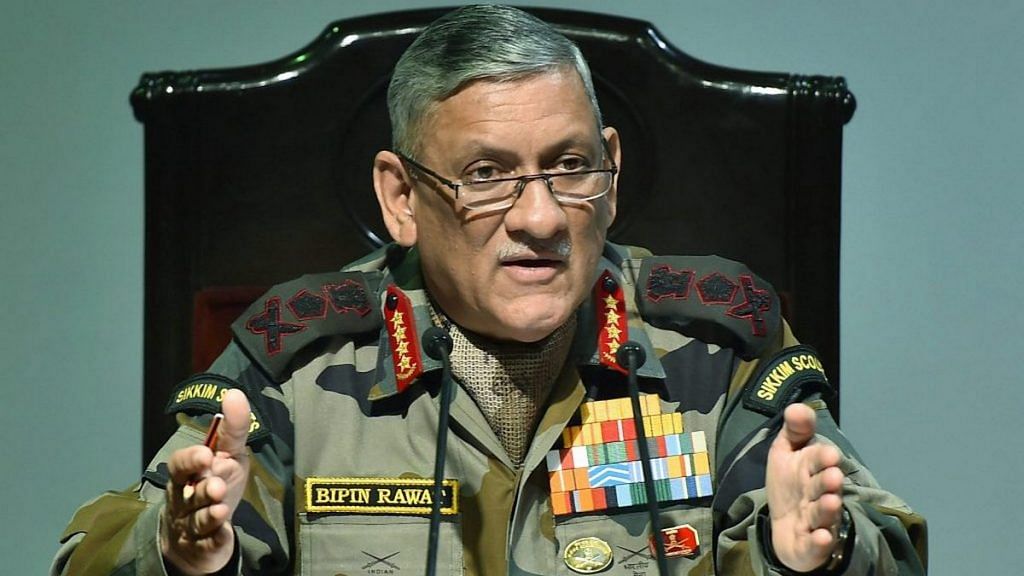Physical and mental health of the forces is integral to modernisation of the Indian Army.
Indian Army chief General Bipin Rawat last Thursday said that the Army is not a job provider, and warned soldiers against feigning disability.
Considering General Bipin Rawat’s audience consisted of disabled veterans and serving soldiers, there is much to be said about the forbearance of these men that they listened. No one feigns disability.
General Bipin Rawat said, “A section of soldiers and officers who call themselves disabled on grounds that they are suffering from high blood pressure, hypertension and diabetes seek concession from being deployed at difficult operational posts.” This is ironic.
Generalisation doesn’t work
It is well-known that officers with such existing conditions (and much of this expresses itself after joining service), who are out on an exercise or deputed in tough, forward or high-altitude, areas may not have access to supportive diets and medical attention. At times, they may not be able to cope with inimical terrain and have collapsed or suffered setbacks and have had to be either sent back or evacuated.
But General Bipin Rawat’s statement on ‘feigning disability’ impacts not only the credibility of the disabled soldier, but also the veracity of institutions such as the Directorate General Armed Force Medical Services (DGAFMS) and the Medical Services Advisory Committee that certify the degree of disability.
Medical conditions such as hypertension are covered by rules as ‘affected by stress and strain of military service’ and also by several judgments of the Supreme Court.
With the advances in modern medicine, ‘feigning disability’ requires a multiple and varied level of collusion. While an odd case may have slipped past the system, generalising feigned disability is disrespectful to both retired and serving personnel.
Also read: Women with disability face higher risk of sexual violence & lower access to justice in India
Government’s handling of disability cases
The Indian Army had declared 2018 as the ‘Year of the Disabled Soldiers in the Line of Duty’, a move that surely does not come too soon.
Over the years, one has seen how cases of disability have been dealt with by the government where the percentage of disability, whether the disability can be attributed to service or not, whether it was a pre-existing condition or not, has been at the discretion of the administrative and financial authorities and the pension wing of the ministry of defence.
That the issue had already been decided by a medical board and approved by the competent authority on the military side of things are of little consequence. This leads to litigation where the matter is taken to court and in the event of the decision being in favour of the litigant, the state shows its upper hand by filing Special Leave Petitions (SLPs) before the apex court. Much of this exercise is usually a waste of public money and, in several cases, the disabled soldier eventually wins his or her case.
Despite the court’s order, there are cases where the government drags its feet in terms of compliance. The forces serve in the toughest of terrains, handle all sorts of equipment, engage constantly with both insurgency and infiltration, and are away from families for long periods. The physical and mental fallout of such deployment is undeniable and leads to both physical and mental disability.
This fact was well recognised by the previous Raksha Mantri who set up a committee of experts to review service and pension matters to minimise litigation and strengthen mechanisms for redressal of grievances. The committee had four retired Generals and an eminent advocate, himself a former military officer, working extensively on disability litigation. In the said report, para 2.2.1 (page 15) specifically focuses on denial of disability benefits by incorrectly branding in-service disabilities as “neither attributable, nor aggravated by service”. The report points out that there is an inherent paradox where all stakeholders agree on granting disability pension, but more often than not this is contested in a court of law due to rigid interpretation of provisions and clauses.
Modernisation in true sense
The world over, disabled soldiers are given immense respect and their due within the system. There is a need to take this learning on board while clamouring for modernisation of the Army because the physical and mental health of the forces is as integral to modernisation as weaponry and equipment. With a steady reduction in the number of young people opting for the armed forces as a career choice, it is important that welfare of forces be demonstrated both in words and in action to attract young people to the Army.
If we want to attract the best young talent to the armed forces, there is a need to demonstrate recognition of the existing conditions of service and an understanding of the fallout it may entail.
Having said that, stating that the Indian Army is not a “means of employment” undermines other avenues of employment. While there is no doubt that the service of the soldier to the nation is most noble, every job serves its role in nation-building. Leaders need to be supportive, and should identify the gaps and build capacity to strengthen institutions.
Also read: Indian Army made way for government to resolve Kashmir, but politics failed
The author is a former civil servant and has worked with the ministry of defence. Her views here are personal.
